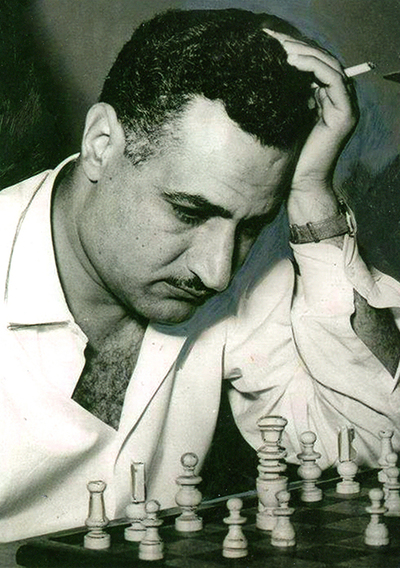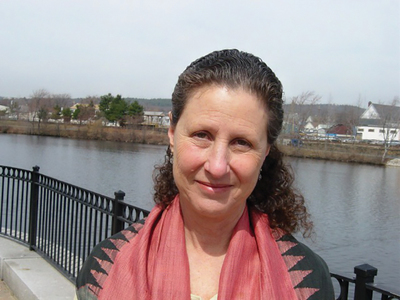Frame to Fame
This is the third part of our series following the paths of four talented filmmakers: Raeshelle Cooke, who directed the short Sometime Around January; Michal Goldman, the woman behind the camera of Nasser’s Republic, The Making of Modern Egypt; Jeff Griecci, whose documentary is Year-round Metal Enjoyment; and Alexander Janko, director of the narrative feature Year by the Sea.
For this installment, we asked the filmmakers how they are feeling further along in the process of submitting their films to festivals. We wanted them to reflect on their entire experience as filmmakers, and hoped to glean their secrets and advice, as well as learn what they might do differently with their next film project. (Read Part 1 and Part 2 of the series, and additional coverage of the filmmakers.)

Above, top to bottom: Moises Bournigal and Dominique LaFleur in Sometime Around January, 2016. Credit: Paul Bulgin.
Raeshelle Cooke: Sometime Around January
“If you’re doing the same thing over and over again without any real progress or change, that’s insanity,” says Raeshelle Cooke, who remains “definitely hopeful” despite her setbacks.
Cooke, who started out as a sports journalist for the Taunton Daily Gazette before realizing her “calling” was to make films centered around music, has begun to create new opportunities for herself. Since we last spoke to her, Cooke has started a new business, RMC Pictures, whose mission is to “put black people on the big screen.” She’s also begun producing music videos for R&B and hip-hop musicians.
Despite being a relative newcomer, the 26 year old has plenty of advice for those new to the director’s chair. “For one,” she says, “Aspiring filmmakers shouldn’t tackle features right away. I would first start with short films so you can hone your skills at directing, writing, editing, whatever it is you creatively do.”
“Prepare, prepare, prepare,” Cooke advises. “And reach for the skies.”

Gamal Abdel Nasser playing chess, June 7, 1954. Courtesy of Michal Goldman.
Michal Goldman: Nasser’s Republic, The Making of Modern Egypt
“The festival route has not at all been what I’d hoped,” says Goldman, “The endless parade of rejections has been emotionally very taxing.” She believes success with festivals can be all about timing. It took her six years to make her film. At the same time, Nasser, another film about Gamal Abdel Nasser by Jihan El-Tahri, was released and “scooped me on the festival circuit.” For her, it’s not about her film’s quality or the timeliness of her topic, but market saturation. “If I had read the writing on the wall a year sooner and finished a year sooner, my film might have been accepted in a number of festivals that, given the release of this other film, rejected mine.”
That experience translates to the main advice she’d give a first-time director: “I think it’s important to make a film that clearly offers something new, either in terms of style or subject.” She adds that developing connections can be key. Even then, “the festival circuit is a bit of a crapshoot,” Goldman says.
“But—and it’s important to say this—I really think success is in the eye of the beholder. And for me, as the filmmaker-beholder, the first definition of ‘success’ is that I feel very strongly that I’ve made the film that I wanted to make, and it says what I wanted it to say. I’m proud of this work.”

Filmmaker Michal Goldman.
Jeff Griecci: Year-round Metal Enjoyment
“I don’t think it’s a bad movie. I just think it’s unique in the subject and the fashion it was created,” says Griecci. Meaning, he created a movie with a niche audience. At this stage in the process, he has realized the audience for his documentary about freight train graffiti artists is at fringe art documentary festivals. “I can’t imagine that this film is going to be an easy thing for other festivals to program,” he says. At peace with that revelation, he finds rejections “almost humorous.”
With that change of attitude, Griecci has planned a DIY tour of Year-round Metal Enjoyment across the Northeast. In late October, the documentary will screen in Montreal, New York City, Somerville, MA, Providence and Portland and Brunswick, ME. Then he hopes to bring it elsewhere, including online with pay-per-view. “The whole idea from the beginning was to get it out to the audience it was designed for.”
These days, the freelance cinematographer and camera operator, who’s worked on projects such as the NBC series Grimm, has plenty to keep him busy: an artist residency in the Maine hinterlands, a gig in Portland to work on a Tom’s of Maine commercial.
Looking back, Griecci believes that his film school didn’t adequately prepare him for the practicalities of making a living as a working filmmaker. Yes, he learned the technical elements of filmmaking. But film school didn’t help much with how to get his film to the marketplace. “What happened to that part of it?” he asks.
Alexander Janko: Year by the Sea
How would Alexander Janko describe his mood these days? “Realistic is the word that comes to mind,” says the director. To achieve that pragmatic state of mind, he’s been crunching numbers. Thus far, his dramatic feature starring Karen Allen has racked up a 25 percent festival acceptance rate and has won eight awards. “Statistics are an indie filmmaker’s friend.”
This not-too-shabby success of Year by the Sea emboldens Janko to counsel newcomers. While the politics of film festivals “will become your foe,” nonetheless he advises filmmakers to submit to as many as financially possible. The results teach you about your film’s “demographic and future marketing needs.” Playing at fests is also a chance to “test” your film before a paying audience. “Make sure you leave enough time and money to polish your gem,” he says. And remember, “Rejection is not failure. Just a programmer’s preference.”
As far as what mistakes he’s made…he’d “replay the Moviola in my head and cut the scenes that didn’t work” before shooting principal photography. “Don’t yell action until you can ‘see’ every frame, every cut. Like a sports star, pre-visualize every shot.”
Janko, who was a musician and composer before helming Year by the Sea, says he didn’t really direct this film. “Rather, I conducted it…Our actors and crew became fellow bandmates. And my job quickly turned into one of listening.” “Directors,” he says, are “holistic shamans practicing preventive medicine until they have to triage in the ER.”
Stay tuned for the next installment of Frame to Fame, which will continue to follow our four filmmakers.
Ethan Gilsdorf is a frequent contributor to Art New England, an author and a writer for the New York Times, Boston Globe, Boston Globe Magazine, Boston Magazine, Salon, and Wired.

